“Contraception cannot be an expression of total self-giving, because in contraception, something is done to oneself to destroy the power to conceive a child. That same selfishness that wants to prevent the child by contraception will grow until it wants to kill the child already conceived. We must fight selfishness with a true, generous and sacrificing love.”
― Saint Teresa of Calcutta.1
There is a surprising amount of controversy swirling around the Catholic Church’s teachings on contraception, but there certainly shouldn’t be.

Some people say that we can use our consciences to decide for ourselves whether or not to use birth control, regardless of what the Church teaches. Some assert that the Church hierarchy, composed entirely of men, hates women’s sexuality and therefore seeks to control and suppress it. Yet others claim that the Church approved of birth control in the past, and is therefore being inconsistent in its current prohibition of the practice.
However, history shows that the teachings of the Catholic Church on contraception have always been consistent and could not be clearer. Only a person who is willfully blinding himself or herself to the facts could make the claim that there is “room for a diversity of opinion” within the Catholic Church on either contraceptive or abortifacient methods of birth control, regardless of the justifications they advance.
The Church is the guardian of our interpretation of the natural law. Since the natural law was given to us by God, the Church does not have the authority to change its fundamental moral principles. The Church, of course, does clarify certain matters in the light of new knowledge, but the fundamental precepts of the natural law in Church teaching remain unchanged. As we have seen, these precepts include a general prohibition on any mutilation or disabling of any of the organ systems of our bodies.
From the time of its founding, the Catholic Church has universally condemned contraception. Among the early Church Fathers who wrote and spoke a Catholic No to contraception are:2
- Athenagoras
- St. Ambrose
- St. Augustine
- Barnabas
- St. Basil the Great
- Caesarius
- Clement of Alexandria
- Ephraem the Syrian
- Epiphanius
- St. Jerome
- St. John Chrysostom
- Hippolytus
- Lactantius
- Minucius Felix
- Origen of Alexandria
- Tertullian
- The assembled bishops at the First Council of Nicaea
As the various Protestant denominations formed, their founders and leaders also condemned contraception in the strongest possible terms. John Calvin called the practice of contraception “condemned” and “doubly monstrous,” and saw abortion as “a crime incapable of expiation.” John Wesley said that contraception is “very displeasing to God, and the evidence of vile affections.” Martin Luther called those who used contraceptives “logs,” “stock” and “swine.”3
Virtually every leader of every Protestant denomination condemned contraception explicitly and forcefully in their sermons and writings. These included Anglicans Henry Alford, William Dodd, Joseph Hall and Christopher Wordsworth; Calvinists Jacob Alting, Robert S. Candlish and Cotton Mather; Evangelicals Keith Leroy Brooks and Thomas H. Leale; Huguenot Jean Mercier; Lutherans Johann Albrecht Bengel, Johannes Brunneman and Abraham Calovius; Methodists Adam Clarke and Richard Watson; Nonconformists Henry Ainsworth, Daniel Defoe and John Gill; Presbyterians John Brown, Robert Dabney and Melanchton W. Jacobus; and Puritans Richard Stock and John Trapp.4
In fact, it is impossible to find any early Protestant minister speaking out in favor of contraception.
The Fatal Error: The Lambeth Conference
Until 1930, all Christian churches were unanimous in their opposition to artificial means of birth prevention, except for a few small fringe groups like the Unitarians and the Quakers. As recently as 1920, the Anglican Church stated:
We utter an emphatic warning against the use of unnatural means for the avoidance of conception, together with the grave dangers—physical, moral, and religious—thereby incurred, and against the evils with which the extension of such use threatens the [human] race.5
The previous year, Anglican C.K. Millard, who had recognized the danger threatening his church, warned:
Although many Malthusians are rationalists, they are well aware that without some religious sanction their policy could never emerge from the dim underworld of unmentioned and unrespected things and could never be advocated openly in the light of day. To this end birth control is camouflaged by pseudo-poetic and pseudo-religious phraseology, and the Anglican Church is asked to alter her teaching. Birth controllers realize that it is useless to ask this of the Catholic Church, but as regards the Church of England, which makes no claim to infallibility, the case is different, and discussion is possible.6
The first crack in the dam was Resolution 15 of the Anglican Bishop’s Lambeth Conference of August 15, 1930, which read as follows:
Where there is a clearly felt moral obligation to limit or avoid parenthood, the method must be decided on Christian principles. The primary and obvious method is complete abstinence from intercourse (as far as may be necessary) in a life of discipleship and self-control lived in the power of the Holy Spirit. Nevertheless, in those cases where there is such a clearly felt moral obligation to limit or avoid parenthood, and where there is a morally sound reason for avoiding complete abstinence, the Conference agrees that other methods may be used, provided that this is done in the light of the same Christian principles. The Conference records its strong condemnation of the use of any methods of conception-control for motives of selfishness, luxury, or mere convenience.
A careful reading of this statement clearly exposes the familiar semantic tools used by the Culture of Death. Upon first reading, Resolution 15 sounds smooth, firm, and compassionate. But it places no real boundaries on the behavior of the Christian, instead leaving all sexual behavior to be judged by the individual’s conscience, regardless of whether it is formed or unformed. Additionally, the language of Resolution 15 is fuzzy and imprecise, providing no real guidance to someone seeking the truth. Today, liberal denominations use similar language to justify abortion and euthanasia.
Just as pro-abortionists used the “hard cases” to impose abortion on demand—and just as pro-euthanasia activists are now using them to lobby for euthanasia on demand—pro-contraception activists used them to pave the way for easy access to birth control in both the secular and religious spheres.
The United States Federal Council of Churches (now the National Council of Churches) had been waiting for a specific denomination to take the lead in “modernizing” Christendom’s stand on birth prevention. Soon after the Anglican capitulation, it endorsed “the careful and restrained use of contraceptives by married people,” while at the same time conceding that “serious evils, such as extramarital sex relations, may be increased by general knowledge of contraceptives.” The FCC demonstrated its appalling lack of understanding of human nature by stating that it “believe[s] that the undesirable use of contraceptives will not be indulged in by most people, and that if the influence of religion and education is properly developed the progress of knowledge will not outrun the capacity of mankind for self-control.”7
Responses to the Lambeth Conference
The reaction of many to the statements by the Anglican Church and the Federal Council of Churches was immediate and vigorous. In the early 1930s, priests and ministers had not yet given up their right—and their duty—to be forceful voices in the public square. These brave men predicted that easy access to artificial birth control would lead to abortion and the destruction of the family. Their spokesmen, experienced students of human nature, understood the “slippery slope” concept, and clearly recognized that we had taken the first fatal step.
Dr. Walter A. Maier, a professor at the Concordia Lutheran Theological Seminary in St. Louis, wrote, “Birth Control, as popularly understood today and involving the use of contraceptives, is one of the most repugnant of modern aberrations, representing a 20th Century renewal of pagan bankruptcy.” The April 2, 1931 issue of The Presbyterian said that “Its [Federal Council of Churches] recent pronouncement on birth control should be enough reason, if there were no other, to withdraw from support of that body, which declares that it speaks for the Presbyterian and other Protestant churches in ex cathedra pronouncements.” And Bishop Warren Chandler of the Methodist Episcopal Church, one of the most strident voices that agreed with the Catholic No to contraception, preached:
The whole disgusting [birth control] movement rests on the assumption of man’s sameness with the brutes … Its [the Federal Council of Churches] deliverance on the matter of birth control has no authorization from any churches representing it, and what it has said I regard as most unfortunate, not to use any stronger words. It certainly does not represent the Methodist Church, and I doubt if it represents any other Protestant Church in what it has said on this subject.8
Protestants were not the only ones protesting the encroachment of contraception on family life.
Since her beginning, the Catholic Church has condemned all unnecessary mutilation of the body. Contraception is unique in that it adds a new dimension to this practice—it actually cripples a major organ system. The Church’s teachings have become even more relevant as the “contraceptive revolution” swept the world in the middle of the 20th century and became firmly entrenched throughout most of the world.
The Catholic Church and the Protestant denominations stood shoulder to shoulder in their fight against the evil of artificially induced sterility until August 15, 1930, when Resolution 15 of the Anglican Bishop’s Lambeth Conference stated that the use of birth control could be left up to the conscience of the individual.

Pope Pius XI reacted to this capitulation swiftly. In his great encyclical Casti Connubii, published on the last day of 1930, he wrote:
In order that she [the Catholic Church] may preserve the chastity of the nuptial union from being defiled by this foul stain, she raises her voice in token of her divine ambassadorship and through our mouth proclaims anew: any use whatsoever of matrimony exercised in such a way that the act is deliberately frustrated in its natural power to generate life is an offense against the law of God and of nature, and those who indulge in such are branded with the guilt of a grave sin. [¶4,§4]
Nearly a century ago, the mainstream media was much more willing to examine social issues from an objective viewpoint than it is now. In fact, for a few years it was just as prophetic as the Catholic Church regarding contraception. The Washington Post, which led the secular media response against birth control, wrote:
Carried to its logical conclusion, the [Lambeth] committee’s report, if carried into effect, would sound the death-knell of marriage as a holy institution by establishing degrading practices which would encourage indiscriminate immorality. The suggestion that the use of legalized contraceptives would be “careful and restrained” is preposterous.9
The Post also exposed how some churches, eager to please man and not God, were being cynically manipulated:
It is the misfortune of the churches that they are too often misused by visionaries for the promotion of “reforms” in fields foreign to religion. The departures from Christian teachings are astounding in many cases, leaving the beholder aghast at the willingness of some churches to teach “Christ and Him crucified.” If the churches are to become organizations for political and scientific propaganda, they should be honest and reject the Bible, scoff at Christ as an obsolete and unscientific teacher, and strike out boldly as champions of politics and science as modern substitutes for the old-time religion.10
The secular press could not have assessed and summarized the situation more accurately. Unfortunately, the Washington Post and its fellows in the media were soon to fall victim to the infiltration and subversion so expertly practiced by the Culture of Death.
The Church and the press were not the only entities which clearly perceived the danger posed to society and morality by the Catholic No to contraception. Many leading atheists and non-Christians clearly predicted the deadly impacts of contraception that are so evident today.
Famed psychologist Sigmund Freud — no friend of the Catholic Church — got to the core of the matter when he pointed out that all sexual perversions begin with what we now call the “contraceptive mentality”:
The abandonment of the reproductive function is the common feature of all perversions. We actually describe a sexual activity as perverse if it has given up the aim of reproduction and pursues the attainment of pleasure as an aim independent of it. So, as you will see, the breach and turning point in the development of sexual life lies in becoming subordinate to the purpose of reproduction. Everything that happens before this turn of events and equally everything that disregards it and that aims solely at obtaining pleasure is given the uncomplimentary name of “perverse” and as such is proscribed.11
Not long after Freud’s death, Mahatma Gandhi publicly rebuked Margaret Sanger when he outlined the inevitable disastrous impacts of artificial contraception:
Artificial methods [of contraception] are like putting a premium on vice. They make men and women reckless….Nature is relentless and will have full revenge for any such violation of her laws. Moral results can only be produced by moral restraints. All other restraints defeat the very purpose for which they are intended. If artificial [birth control] methods become the order of the day, nothing but moral degradation can be the result….As it is, man has sufficiently degraded women for his lust, and artificial [birth control] methods, no matter how well-meaning the advocates may be, will still further degrade her.12
The Spread of Contraception
Inevitably, the expansion of approval of contraception by the Protestant churches from just the “hard cases” to all cases proceeded with great speed. The National Council of Churches (NCC) proclaimed on February 23, 1961:
Most of the Protestant churches hold contraception and periodic abstinence to be morally right when the motives are right. The general Protestant conviction is that motives, rather than methods, form the primary moral issue provided the methods are limited to the prevention of conception. Protestant Christians are agreed in condemning abortion or any method which destroys human life, except when the health or life of the mother is at stake.
This NCC statement soon fell by the wayside as the Protestant churches continued to follow the latest public opinion polls and psychological findings instead of God. Today, almost all of the mainline Protestant denominations accept not only contraception but unrestrained abortion. These church denominations are paying the price for their betrayal of the natural law. They are dying out, having lost a third of their combined memberships since 1970.13 In addition, more and more Protestant churches are accepting euthanasia and homosexuality, including ersatz same-sex “marriage.”
Freud, Gandhi, and The Washington Post have proven prophetic.
Meanwhile, the Catholic Church continues to stand firm.
The Teaching of the Popes
The Pope does not live in a vacuum, as some would have us believe. He is well aware of the currents of dissent and apostasy in the Church because he consults the finest body of practical and moral theologians in the world. Because of the terrible spiritual and demographic damage wreaked by contraception, the Vatican issued more than one hundred denunciations of it during the 20th Century alone.
For example, Pope Pius XII stated:
Every attempt of either husband or wife in the performance of the conjugal act or in the development of its natural consequences which aims at depriving it of its inherent force and hinders the procreation of a new life is immoral; and that no ‘indication’ or need can convert an act which is intrinsically immoral into a moral and lawful one… This precept is in force today, as it was in the past, and so it will be in the future also, and always, because it is not a simple human whim, but the expression of a natural and divine law.14
In his encyclical Mater et Magistra, Pope St. John XXIII taught, “The transmission of human life is the result of a personal and conscientious act, and, as such, is subject to the all-holy, inviolable and immutable laws of God, which a man ignores and disobeys to his cost.…Those who violate His laws not only offend the divine Majesty but degrade themselves and humanity.”15
Perhaps the most direct affirmation of Church teaching was presented by St. John Paul, who said, “On my part I owe it to my Apostolic Office to reaffirm as clearly and as strongly as possible what the Church of Christ teaches in this respect, and to reiterate vigorously her condemnation of artificial contraception and abortion.”16 He also said, “Anti-life actions such as contraception and abortion are wrong and are unworthy of good husbands and wives.”17
The teaching of the Catholic Church on contraception has not changed ― and can never change. In 1988, St. John Paul summarized the Church’s teaching regarding birth control in a single sentence: “No personal or social circumstances have ever or can ever justify such an [contraceptive] act.”18 He also firmly stated that the ban on contraception “cannot be questioned by the Catholic theologian,” much to the consternation of dissenting theologians in the Western world.19
Final Thoughts
In summary, the Roman Catholic Church has consistently condemned contraception as a gross violation of the natural law since her founding, and has been absolutely consistent in this teaching ever since. In a sense, the Church is compelled to do this, since she does not have the authority to abridge or nullify the natural law in any respect.
Thus, it is impossible for the Church to ever accept or condone the practice of birth control. Those who demand that the Church “soften” her opposition to contraception for “pastoral” or other reasons simply do not comprehend what either the Roman Catholic Church or the natural law really are.
+ Endnotes
[1] Mother Teresa of Calcutta. “Whatever You Did Unto One of the Least, You Did Unto Me.” Address given at the National Prayer Breakfast in Washington, D.C., Thursday, February 3, 1994.
[2] St. Ambrose, Bishop of Milan (c. 339-397), Hexameron, 5.18.58; Athenagoras of Athens, letter to Marcus Aurelius in 177, Legatio pro Christianis (“Supplication for the Christians”), page 35; St. Augustine, Bishop of Hippo (354-430), De Nuptius et Concupiscus (“On Marriage and Concupiscence”), 1.17; Barnabas (c. 70-138), Epistle, Volume II, page 19; St. Basil the Great, First Canonical Letter, Canon 2 (A.D. 374); Caesarius, Bishop of Arles (470-543), Sermons, 1.12; Clement of Alexandria, “The Father of Theologians” (c. 150-220), Christ the Educator, Volume II, page 10. Also see Octavius, c.30, nn. 2-3; Ephraem the Syrian, De Timore Dei, page 10; St. Jerome, Letter to Eustochium, 22.13 (A.D. 396); St. John Chrysostom, Homilies on Romans 24 (A.D. 391); Letter of Barnabas 19 (A.D. 74); Hippolytus, Refutation of All Heresies (A.D. 228); Lactantius, Divine Institutes 6:20 (A.D. 307); Minucius Felix, Octavius, 30 (A.D. 226); Origen of Alexandria (185-254), Against Heresies, page 9; Tertullian, Apology, 9:8 (A.D. 197), and The Soul, 25,27 (A.D. 210). The original quotes are given in “The Fathers Know Best: Contraception.” This Rock, January 1996, pages 40 to 42.
[3] The original quotes are provided in Charles Provan. The Bible and Birth Control [Monongahela, Pennsylvania: Zimmer Press], 1989.
[4] The original quotes are provided in Charles Provan. The Bible and Birth Control [Monongahela, Pennsylvania: Zimmer Press], 1989.
[5] From the Anglican’s 1920 Lambeth Conference. The original quotes are provided in Charles Provan. The Bible and Birth Control [Monongahela, Pennsylvania: Zimmer Press], 1989.
[6] Anglican C.K. Millard, The Modern Churchman (1919), as quoted in Patrick F. Fagan. “A Culture of Inverted Sexuality.” The Catholic World Report, November 1998, page 61.
[7] “Protestants Endorse Birth Control.” The American Birth Control League’s Birth Control Review, Volume XV, Number 4 (April 1931), page 102.
[8] The original quotes are provided in Charles Provan. The Bible and Birth Control [Monongahela, Pennsylvania: Zimmer Press], 1989.
[9] “Forgetting Religion.” The Washington Post editorial page, March 22, 1931.
[10] “Forgetting Religion.” The Washington Post editorial page, March 22, 1931.
[11] Sigmund Freud. Lecture entitled “The Sexual Life of Human Beings.” The Complete Psychological Works of Sigmund Freud, James Strachey (editor), Volume 16, pages 303 to 319.
[12] Mahatma Gandhi, quoted in Father A.S. Antonisamy. Wisdom for All Times: Mahatma Gandhi and Pope Paul VI on Birth Regulation. Family Life Service Centre, Archbishop’s House, Pondicherry 605001 India. June 1978. Quotes are taken from D.G. Tendulkar (Editor). The Collected Works of Mahatma Gandhi, Volumes 2 and 4. Published by the Ministry of Information and Broadcasting, Government of India.
[13] For references and calculations, e-mail Brian Clowes at bclowes@hli.org and ask for spreadsheet F-20-06.XLS, “Membership in Major Pro-Life, Pro-Abortion and “Neutral” Churches in the United States, 1960-2013.”
[14] Pope Pius XII, Acta Apostolica Sedis XLIII (1951), page 843 [emphasis in the original].
[15] Pope John XXIII, Encyclical Mater et Magistra [“On Truth, Unity and Peace”], ¶193, May 15, 1961.
[16] Pope St. John Paul II, in his homily during the Mass for Peace celebrated at Quezon Memorial Circle, Manila, the Philippines, February 19, 1981, “Blessed Are the Peacemakers!”
[17] Pope St. John Paul II, in his homily at the Vatican, August 17, 1985, “The Married Life Calls for a Constant and Generous Effort to Deepen the Conjugal Communion.”
[18] Pope St. John Paul II, during a November 12, 1988 address to the final session of a three-day meeting of 300 Catholic moral theologians at the Pontifical Lateran University to celebrate the 20th anniversary of Humanae Vitae. “Pope Warns Theologians not to Question Ban on Contraception.” The Wanderer, November 24, 1988, page 1.
[19] Pope St. John Paul II, during a November 12, 1988 address to the final session of a three-day meeting of 300 Catholic moral theologians at the Pontifical Lateran University to celebrate the 20th anniversary of Humanae Vitae. “Pope Warns Theologians not to Question Ban on Contraception.” The Wanderer, November 24, 1988, page 1.
Related Content
Dr. Brian Clowes has been HLI’s director of research since 1995 and is one of the most accomplished and respected intellectuals in the international pro-life movement. Best known as author of the most exhaustive pro-life informational resource volume The Facts of Life, and for his Pro-Life Basic Training Course, Brian is the author of nine books and over 500 scholarly and popular articles, and has traveled to 70 countries on six continents as a pro-life speaker, educator and trainer.


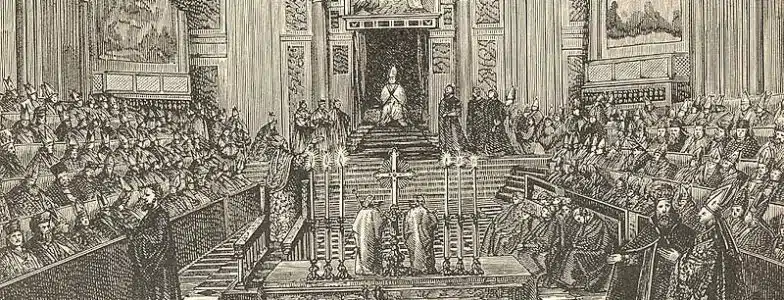

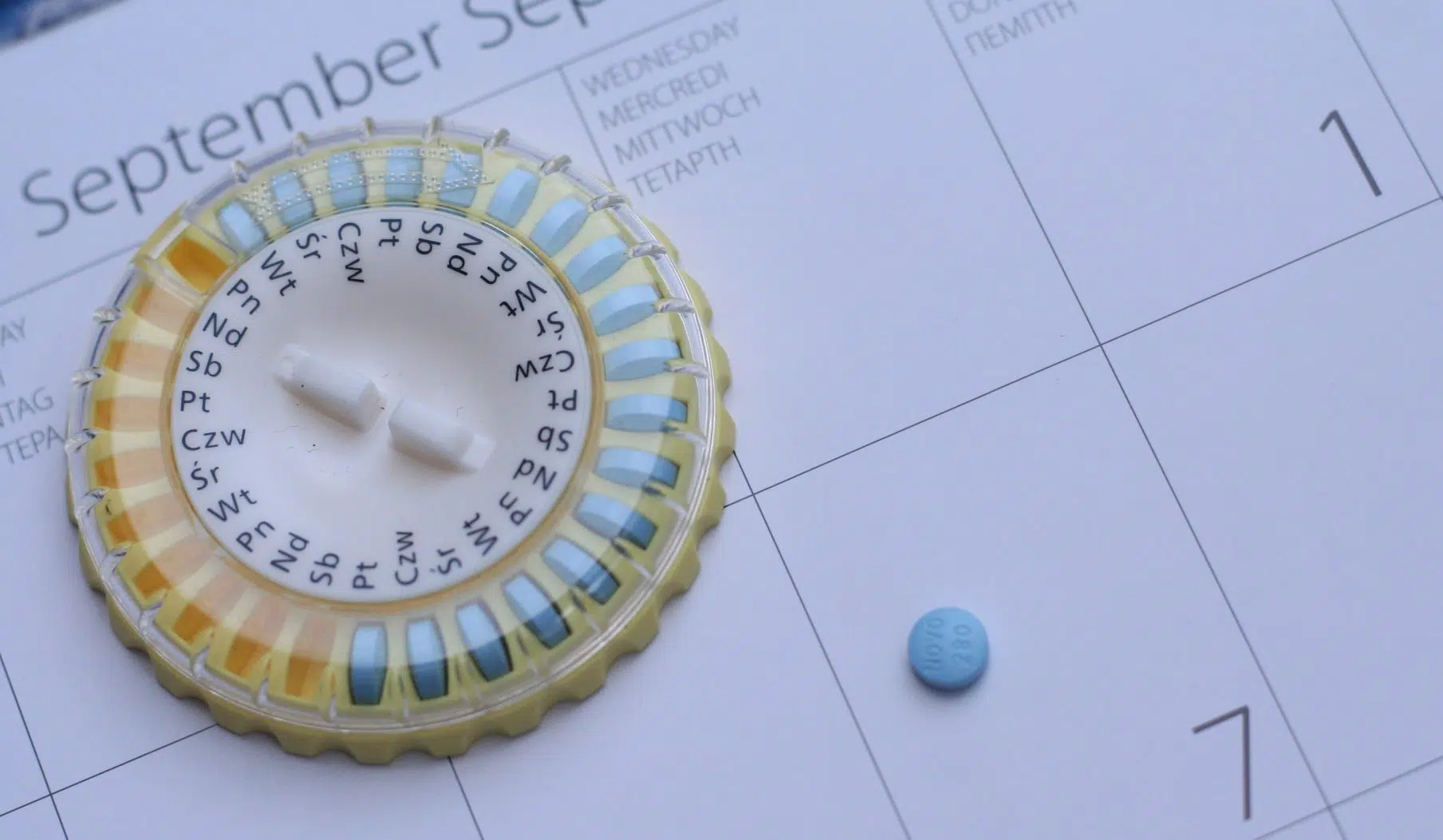


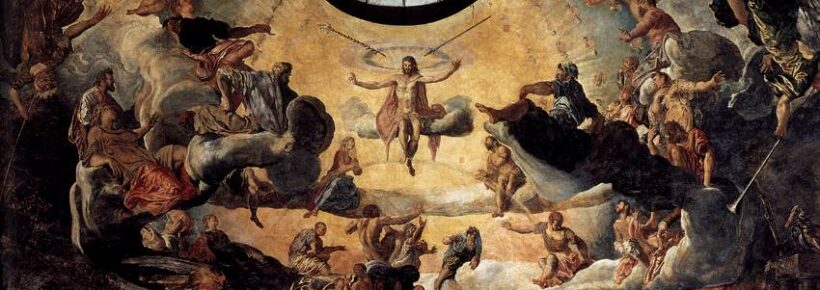

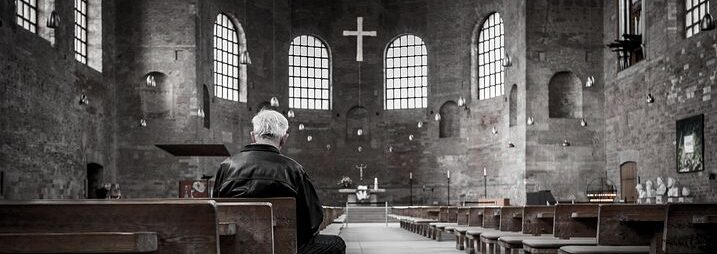


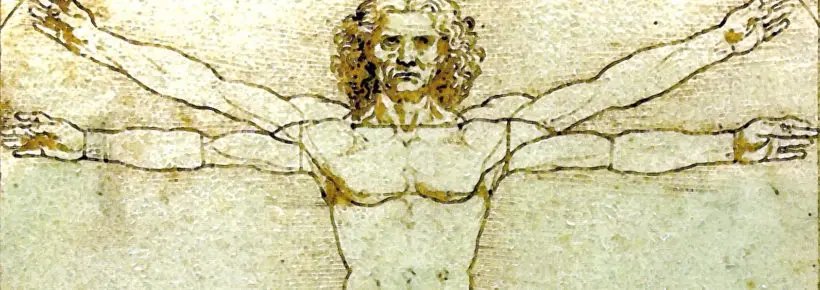



Jul 11 2022
Thank you so much for this great review Dr Brian Clowes including the 1929 Anglican switch to contraception as an extrinsic rather than an intrinsic problem.
However, did I miss any reference to 1 St Augustine The contraceptive act is not the marriage act, which if we returned to propagating that MIGHT resolve a lot of problems and 2 St Thomas Aquinas who wondered about whether life began at quickening. HOWEVER I don’t believe that that EVER became Church teaching as you said.
Do you not think that the internal Church debates would have been worth mentioning in fairness to Protestantism. And the consistent resolution of the debates in favor of contraception being intrinsically evil (in fairness to us as you have expounded on so well).
Again, thank you. May God continue to bless you and your family and your work and hello to your HLI boss if you see him regularly. You might remind him that I attended one of his Masses at a conference in Ireland in 2018 I think, certainly a few years ago.
Yours Sincerely in Christ,
Margaret Pearson (Mrs)
PS Still hoping to get back to the USA.
There is one typo in the Casti Connubii quote “any use whatsoever of matrimony exercised in such a way that the act is deliberately frustrated in its natural power [AND PURPOSE] to generate life..” NFP kills the pupose which is why agenesic NFP is intrinsically evil.
The quotation as presented above is faithful to this Vatican-approved translation of Casti Connubii: https://www.vatican.va/content/pius-xi/en/encyclicals/documents/hf_p-xi_enc_19301231_casti-connubii.html. Thank you for your attention to detail, John.
The gnostic sect of Manichaeism was condemned in part for its teaching of scheduled abstinence, “rhythm,” now “improved” by the symptomatic and thermal methods (combined as “sympto-thermal” method) and called “Natural Family Planning.”
Various poisonous potions were popular through the ages, as were herbal concoctions that caused sterility.
You bring up an interesting point, Henry. Manichaeism taught a dualistic view – that all of the physical world is evil and only the spiritual world is good – so Manichaeism was condemned because it used abstinence as contraception, since the sect considered bringing a child into the world as wicked.
I appreciated reading this. If Dr. Clowes has them, I would appreciate the actual patristic quotes referenced in note ii. Also, what specific means of contraception are the fathers condemning?
Thank you
Hello, Father! It is certainly good to hear from you. The actual quotes are in this fantastic article carried on the EWTN website: https://www.ewtn.com/catholicism/library/contraception-1017. As far as the specific means of contraception the Fathers were condemning, it is really difficult to tell by looking at the quotes themselves. But given the times, I imagine that the only form of contraception that was available was onanism.
The fathers condemn anything which subordinates the ends of marriage – NFP included.